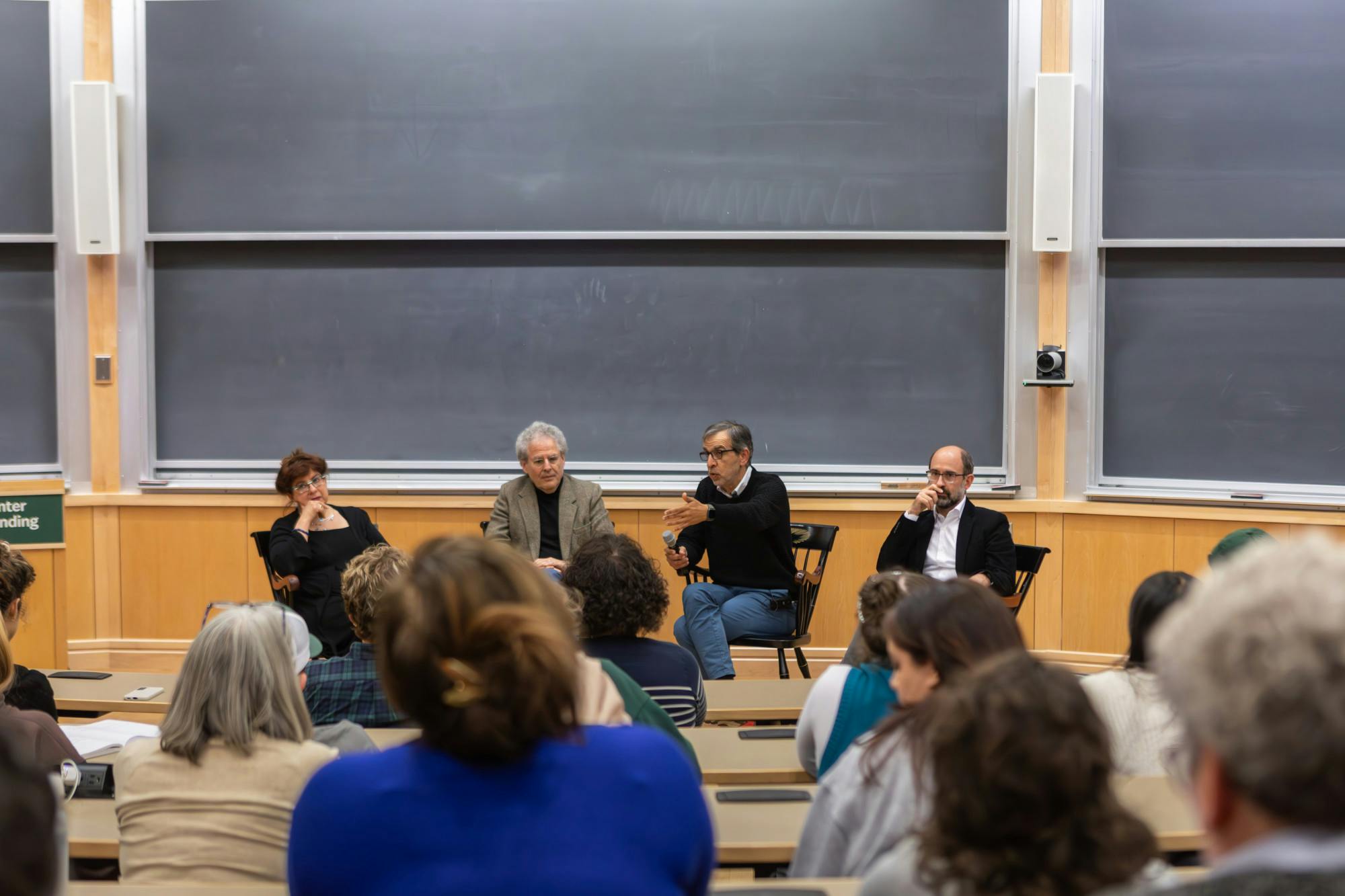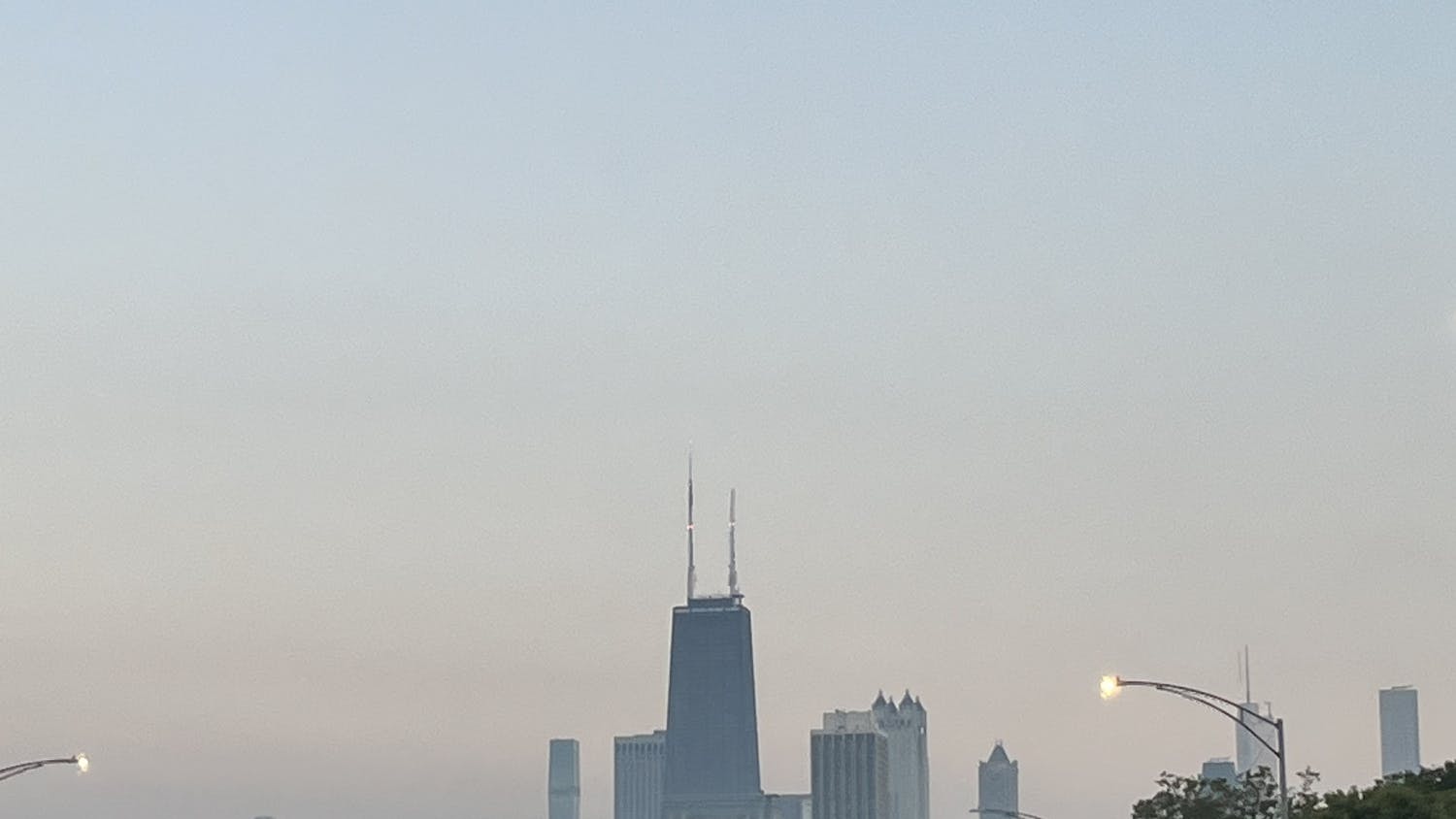Throughout fall 2023, public discourse surrounding the Israel-Hamas war and its historical roots have dominated college campuses. College administrations have faced pressure to combat islamophobia and antisemitism around the issue, while also protecting both the safety of students and their right to speak freely. Some of Dartmouth’s peer institutions, such as the University of Pennsylvania, have come under fire for their reaction to the outbreak of the war. In December, former UPenn President Liz Magill resigned amid controversy over her response to the conflict.
In comparison, Dartmouth has received positive media attention for its navigation of the Israel-Hamas war. An NBC news article referred to Darmtouth’s approach to the Israel-Hamas war as “novel,” and U.S. Secretary of Education Miguel Cardona praised Dartmouth for facilitating peaceful discourse on campus.
Other events at Dartmouth, such as the arrests of Kevin Engel ’27 and Roan V. Wade ’25, have received little national attention comparatively. Engel and Wade were participating in a sit-in protest of the College’s alleged investments in Israel when they were arrested in October.
A poll sent out to campus by The Dartmouth revealed that students are divided on the administration’s responses to the events of Oct. 7, the breakout of the Israel-Hamas War and other campus events that occurred in reaction to the conflict, respectively. Although 29% of students surveyed believe Dartmouth has handled the conflict far better than other universities, 23% of students believe Dartmouth has handled the conflict far worse.

According to students, the College has succeeded in preventing violence in reaction to the conflict.
Sami Lofman ’24, who briefly lived in Israel and has family that currently resides there, highlighted how the small size of Dartmouth campus has helped limit violence and harassment.
“We have a small student body, so everyone knows each other,” Lofman said. “I think that really decreases the risk of violence or harassment. I think it’s good that Dartmouth is getting recognition for that. But … it doesn’t mean everything’s perfect, either.”
Although little violence has occurred at Dartmouth specifically, one student born and raised in the Gaza Strip, who asked to remain anonymous to speak candidly about his experiences, feared for his safety in Hanover in the wake of the events of Oct. 7. He emphasized the impact of the shooting in Burlington, after which the Beilock administration did not release a statement.
“It didn’t feel safe honestly, knowing that my family’s not safe back home and knowing about [everything] happening around college campuses here in the U.S. … and what happened with the shooting [in Burlington] or the doxing stuff,” he said. “I was fearful that … all the dreams that I’ve been building since I was in Gaza to study here, build a life and a good education here started being driven away from me.”
Other students also felt a lack of support from the College compared to other peer institutions, especially Kevin Engel ’27 and Roan V. Wade ’25, the two protesters who were arrested.
“Dartmouth was the first institution within the Ivy League to arrest students, and just over a week later, Brown turned around and arrested 20 students who they then dropped the charges for,” Wade said. “Dartmouth set an extremely dangerous precedent.”
Wade stated that the College has not dropped the charges against Engel and Wade and that their hearing is on Feb. 26.
While some students felt outraged by the arrest because they believed it hindered free speech, other students felt the actions taken by the College were valid to maintain campus safety, specifically because the Dartmouth New Deal — a set of demands presented to the College by the protestors — stated that the College’s failure to respond by Jan. 3 would result in“physical action.”
“In terms of the arrest of two students, a lot of students on campus viewed that negatively,” Lofman said. “Others viewed it as a protection of [the] physical safety of students on campus. So, there was definitely disagreement about that among the student body.”
Engel maintained that the College has a responsibility to protect students’ right to free speech, as well as to remove themselves from investments that are tied to Israel’s actions in the war.
“[The College] should drop charges that they’re pressing against me and [Wade],” he said. “Having this trespass charge oppresses [what] we say, infringes on our right to free speech as students. They could … divest from apartheid and the institutions that are committing war crimes.”
Engel also said that Beilock’s administration has taken a biased approach in response to events connected to the war.
“The President spoke at the Israel vigil [in the fall], which was a very political event,” he said.
“They sang the Israeli national anthem. But, when asked to attend a vigil organized by students honoring the lives of both Israeli and Palestinians lost in the conflict, the President said that it was too political for [her] to attend.”
The ’27 from the Gaza Strip also added that the support given to him by the administration mainly consisted of a voicemail left on his phone offering the Student Wellness Center as support.
“I felt like, ‘Is that all you have to offer?’” he said. “I didn’t think they meant it … Beilock is not seeing us [Palestinian students] as humans, she just sees us as international students or just as numbers.”
Although the ’27 has felt that he has “nothing to praise the administration for,” he emphasized the care that professors and students have shown.
“The best thing here at Dartmouth College is the professors — and the students here as well,” he said. “The majority of professors here are so understanding, they come and talk to me when I go to office hours and stuff. The students in general are [also] so understanding.”
In addition to the support and protection of students, the College has a major role to play in the discourse surrounding the Israel-Hamas war, which includes releasing public statements and organizing events, such as Dartmouth Dialogues. Some students, such as Brandon Horn ’27, feel as though the Dartmouth administration has handled discourse about the war sufficiently.
“At the end of the day, it’s not the institution’s job to decide what’s right or wrong,” he said. “It’s the institution’s job to be an area where students can voice their opinions. I think that’s one thing that Dartmouth has made sure that has occurred.”
Asya Ulger ’26 said that the administration could do more to inform students about the conflict, even with the talks they have already facilitated. Being Turkish, she is familiar with the geography and political landscape of the Middle East and believes that issues arise due to a lack of historical knowledge about the conflict.
“There’s a big lack of knowledge on the issue, especially considering the historical context,” she said. “And [Dartmouth’s administration] had a couple of talks informing the students about the historical context and what has happened recently, but I don’t think it reached a larger body of students.”
Both Wade and Engel believe that universities are responsible for facilitating peaceful conversations around current events.
According to the survey, 50% of respondents are very dissatisfied with Beilock administration’s efforts to foster an environment where students can freely express views on the current war.
Engel highlighted how dialogue on a diversity of ideas can be uncomfortable but is crucial to the college experience.
“It is important that there is dialogue between people who have opposing views,” Engel said. “... Even though, oftentimes, these events are deemed too political for the classroom, they should definitely be communicated, there should be conversation on campus about them.”
Lofman also emphasized the importance of dialogue across different perspectives, including within different communities.
“I know that [the] Jewish community has felt very supported by Beilock in a lot of ways,” she said. “[But] I think it’s more about creating a culture that strives to have these conversations that are open to opinions that aren’t their own, and that will actually engage with the other side. I think it’s about continuing to create that culture on campus.”
The anonymous ’27 said he thinks that Dartmouth Dialogues has not represented his perspective fairly, specifically referring to one event he attended.
“Even with Dartmouth Dialogues … I’ve been to only one discussion, and it felt like it was a one-sided thing, and it didn’t feel like the other side was represented,” he said. “The Israeli side was being represented, but the Palestinian side was not represented at all … it didn’t feel as though there was discussion of the lives Palestinians have lost, only discussion of the losses on the Israeli side.”
He added that the one Dartmouth Dialogues event he attended frustrated him because of this one-sidedness, and he will not be attending further discussions that “are not going to represent me.”
As Dartmouth continues to navigate the impacts of the Israel-Gaza War, ultimately, the measure of its success has yet to be fully determined.




